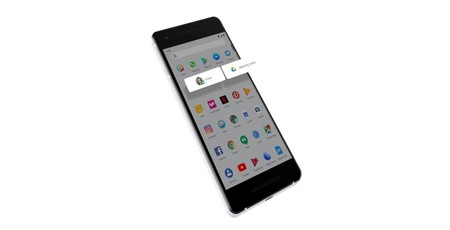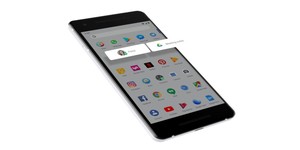Advertising giant Google has officially announced the launch of Android 9 Pie, previously known as Android P, with factory images available for its supported own-brand devices.
Building on Android 8 Oreo, and continuing the dessert-themed alphabetical naming convention adopted by the company with the release of Android 1.5 Cupcake, Android 9 Pie is claimed to include built-in artificial intelligence (AI) capabilities which go considerably beyond the add-on voice assistant functionality of its predecessors.
'It comes with a heaping helping of artificial intelligence baked in to make your phone smarter, simpler and more tailored to you,' claims Google's Sameer Samat in the Android 9 Pie launch announcement. 'We've built Android 9 to learn from you - and work better for you - the more you use it. From predicting your next task so you can jump right into the action you want to take, to prioritising battery power for the apps you use most, to helping you disconnect from your phone at the end of the day, Android 9 adapts to your life and the ways you like to use your phone.'
Those features, Samat claims, add up to a considerable improvement in usability and performance, and include such specifics as adaptive battery settings which learn your favourite applications to ensure they're not optimised out of existence when running in the background, self-learning adaptive brightness, quick-response 'app actions', and new system navigation tied to a single context-sensitive home button.
Some features, though, aren't available at launch. Slices - 'pie... slices... get it?!,' jokes Samat - is designed to use the operating system's AI smarts to pull up relevant information from installed applications during search operations, with the example being information on pricing and estimated time of arrival for Lyft rides, as provided by the installed application, appearing during a Google search for 'Lyft'. This, Samat admits, won't be publicly available until 'later this fall', and is likely to require developers to specifically add support to their applications.
Other changes include 'digital wellbeing features' which try to shame you into using your phone or tablet less, enhanced do-not-disturb functionality, better security including encrypted DNS queries as standard. Currently-supported Pixel phones will receive the update over-the-air starting today, Google has confirmed, while Android One devices along with those from Sony Mobile, Xiaomi, HMD Global, Oppo, Vivo, OnePlus, and Essential which were part of the Android P beta programme will receive the full release 'by the end of this fall'.
More information is available on the official website.

MSI MPG Velox 100R Chassis Review
October 14 2021 | 15:04









Want to comment? Please log in.